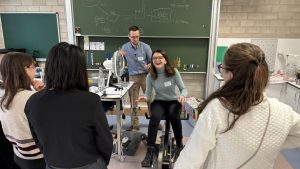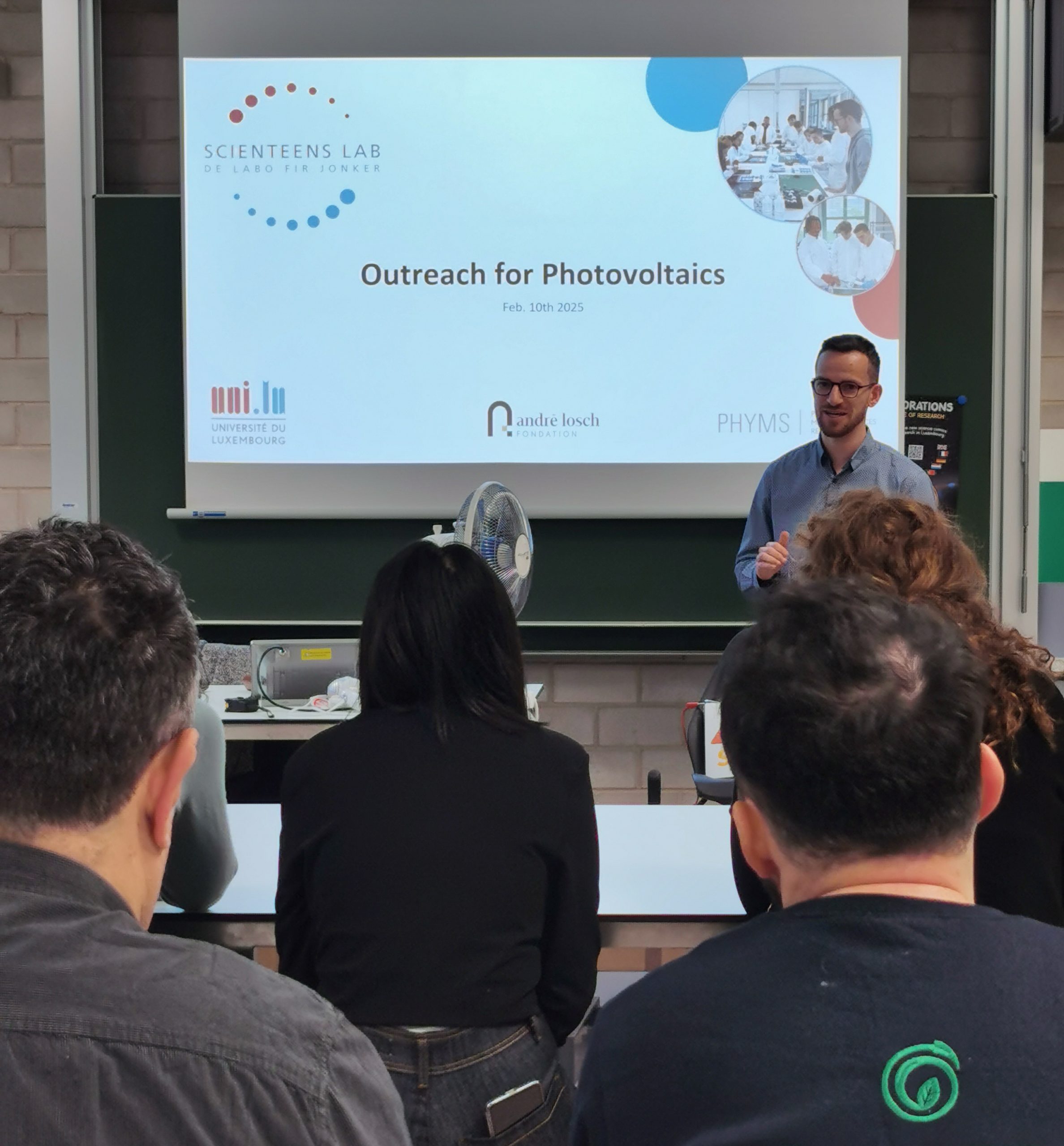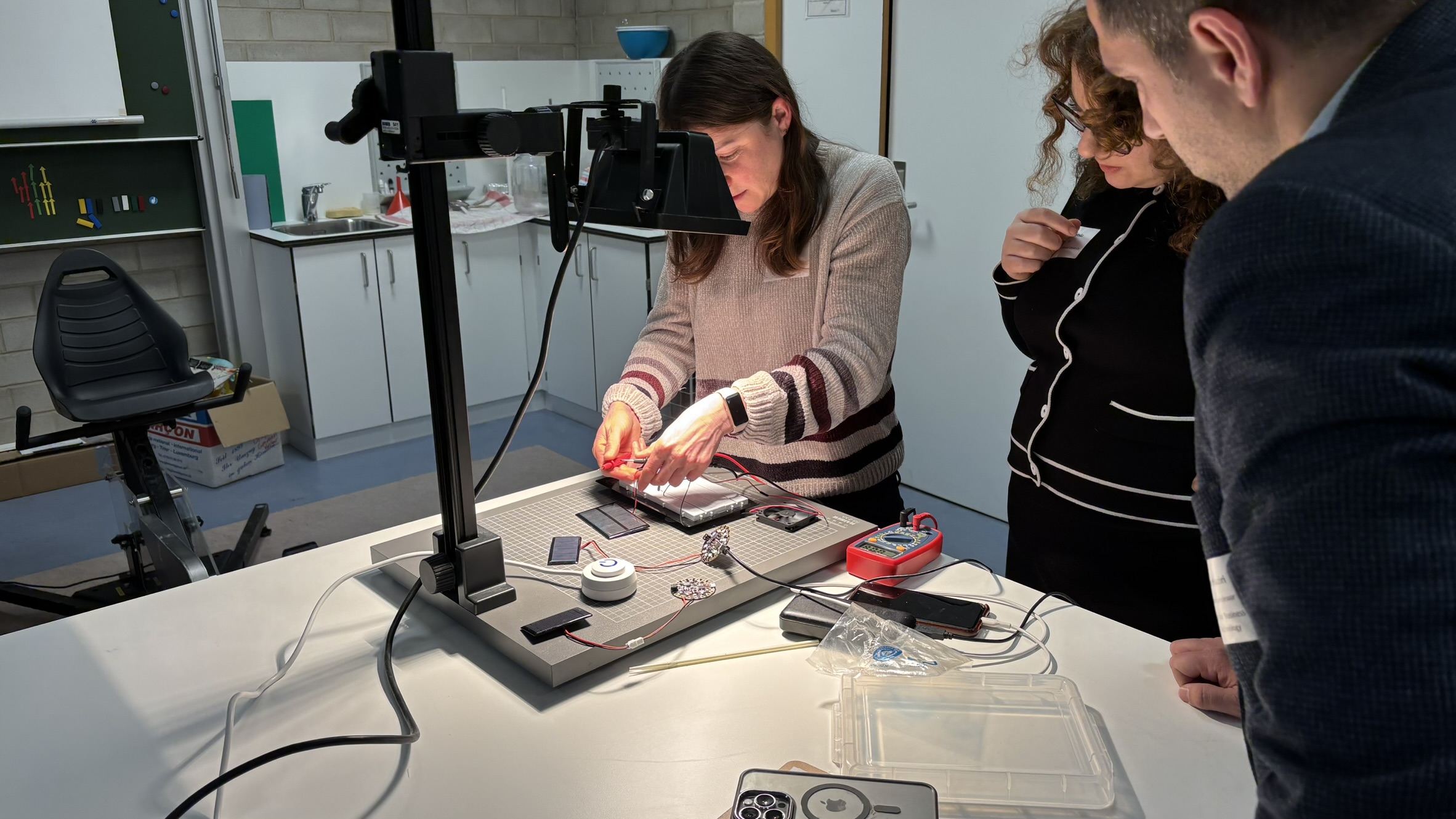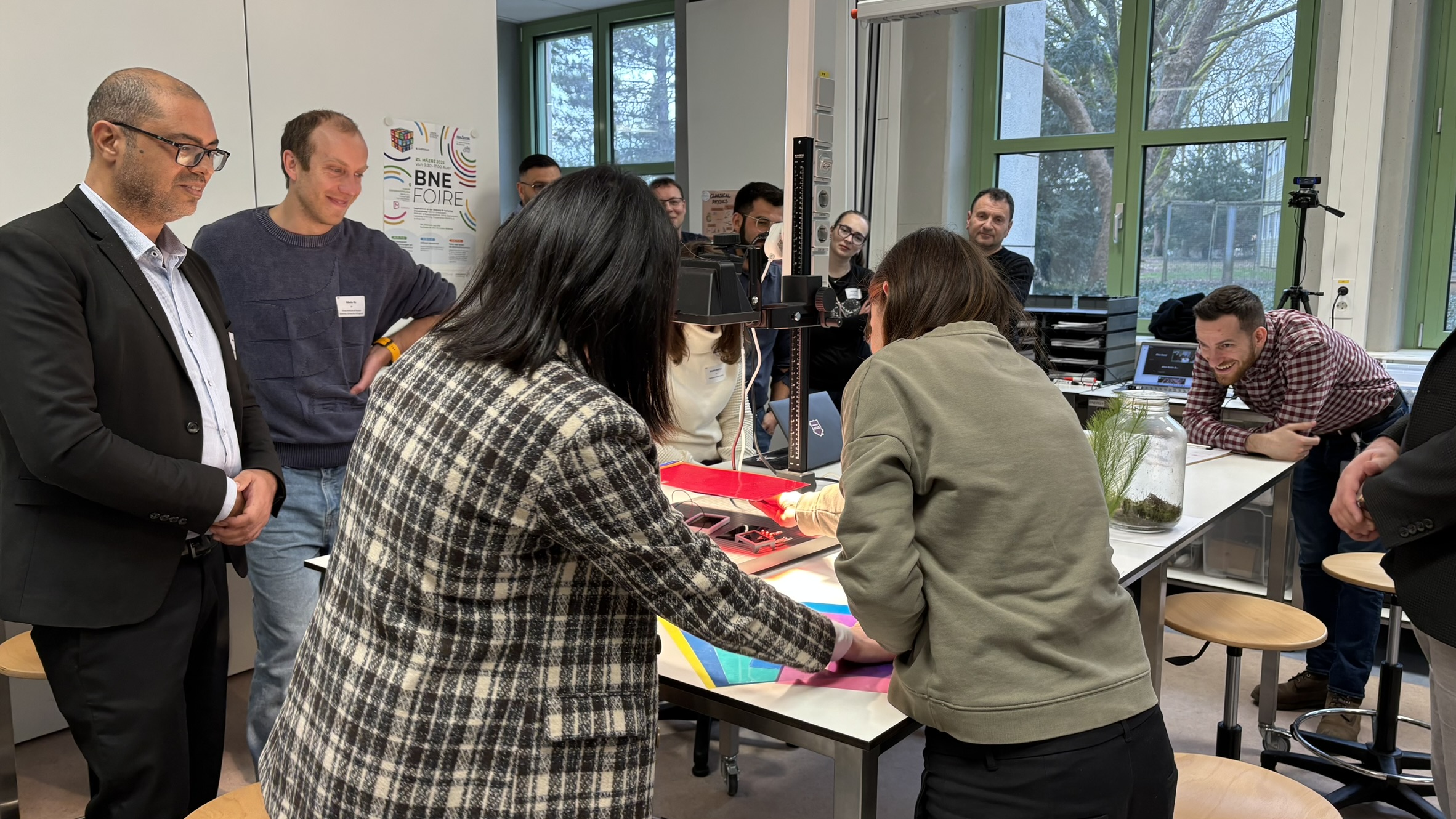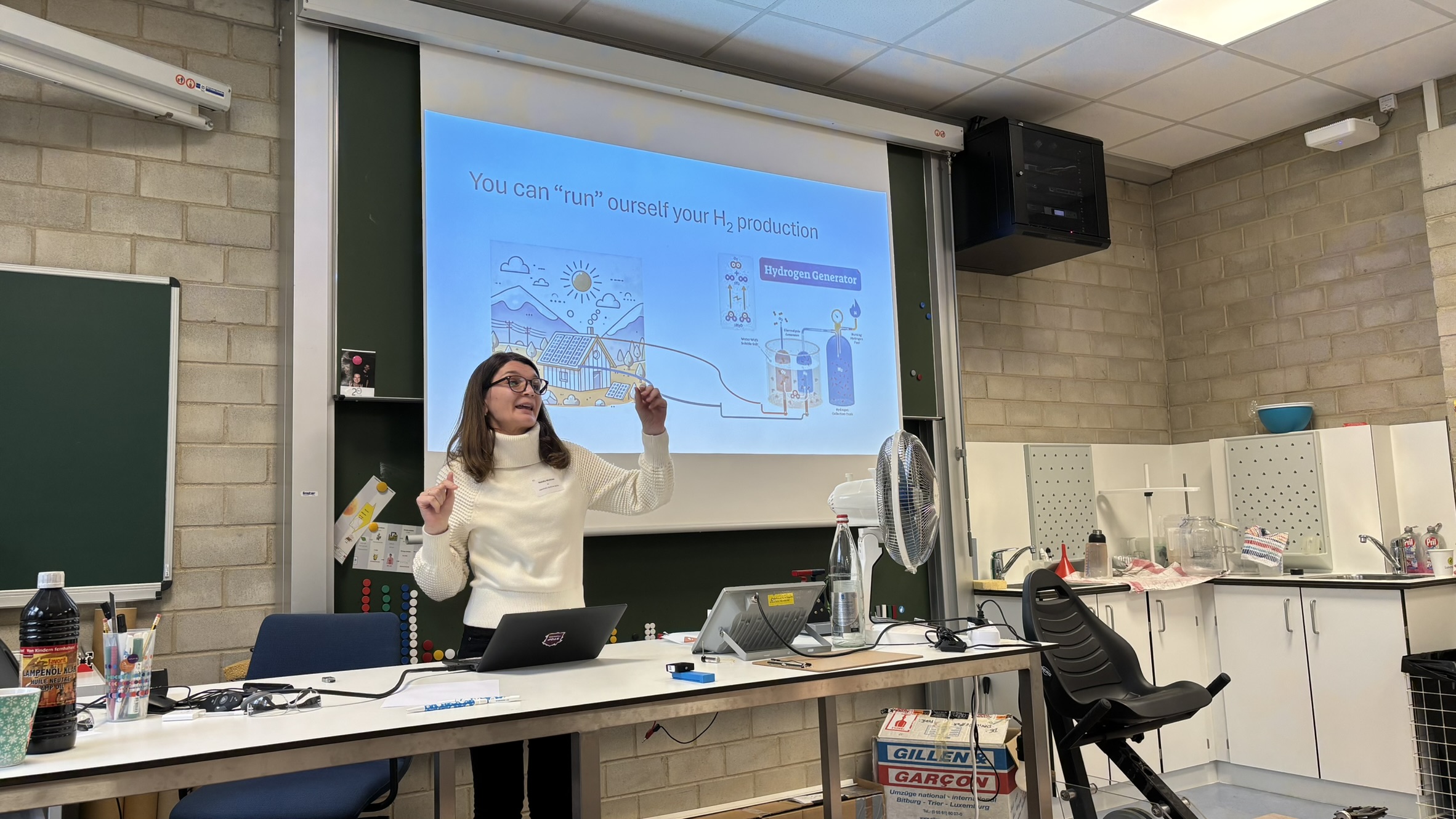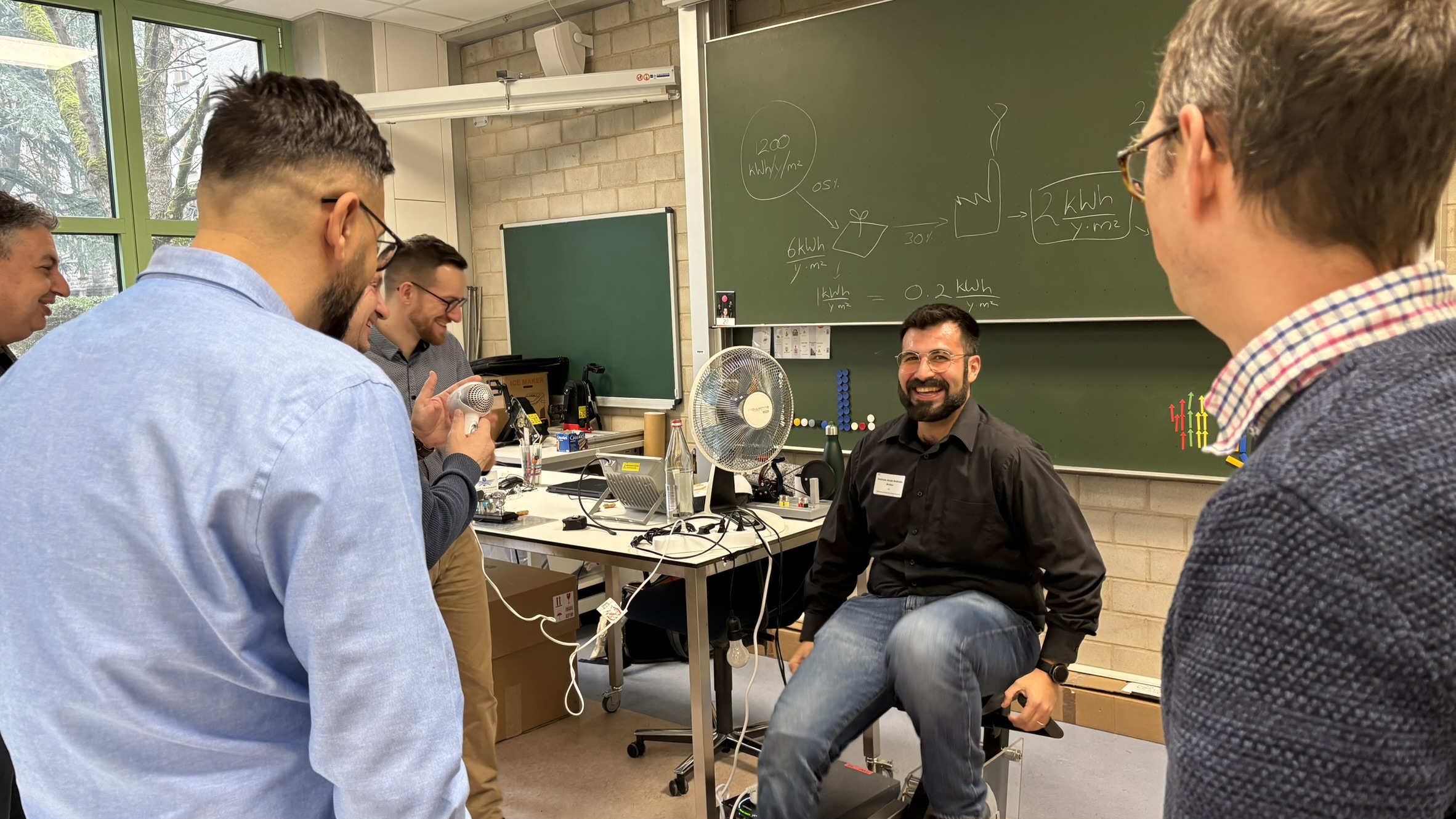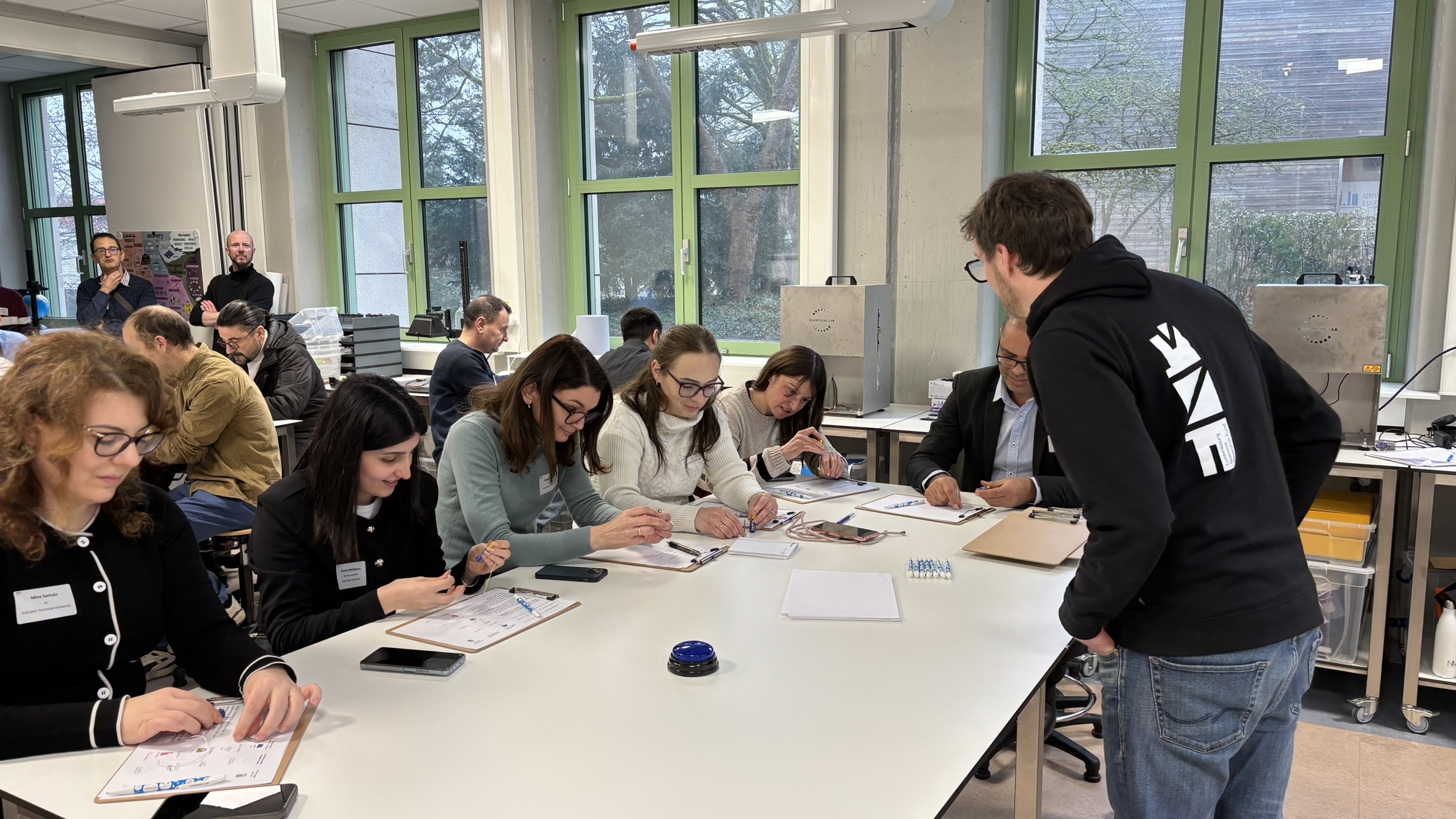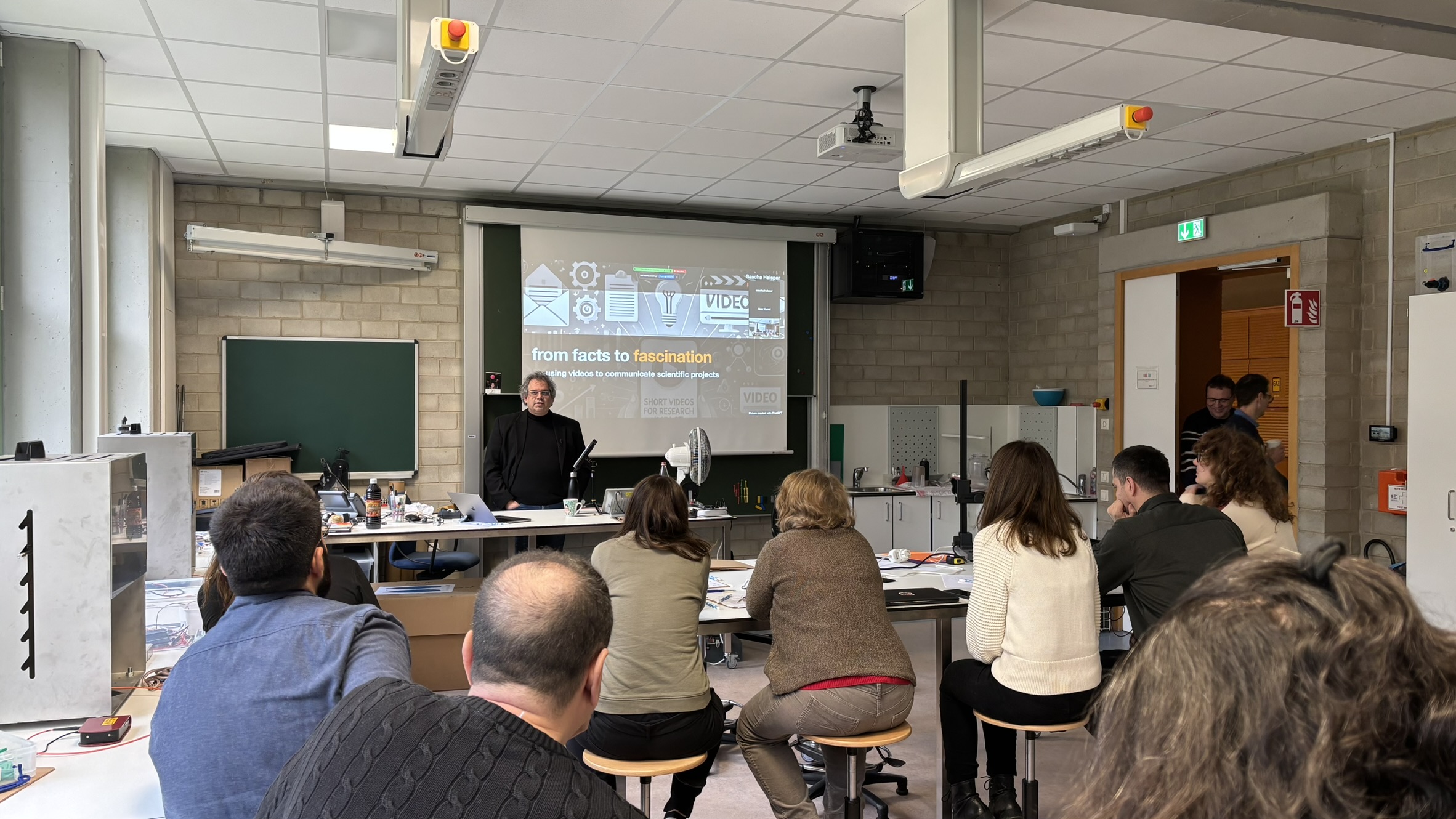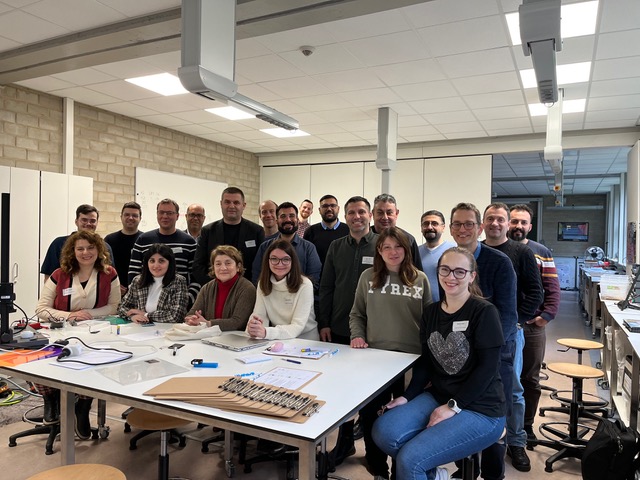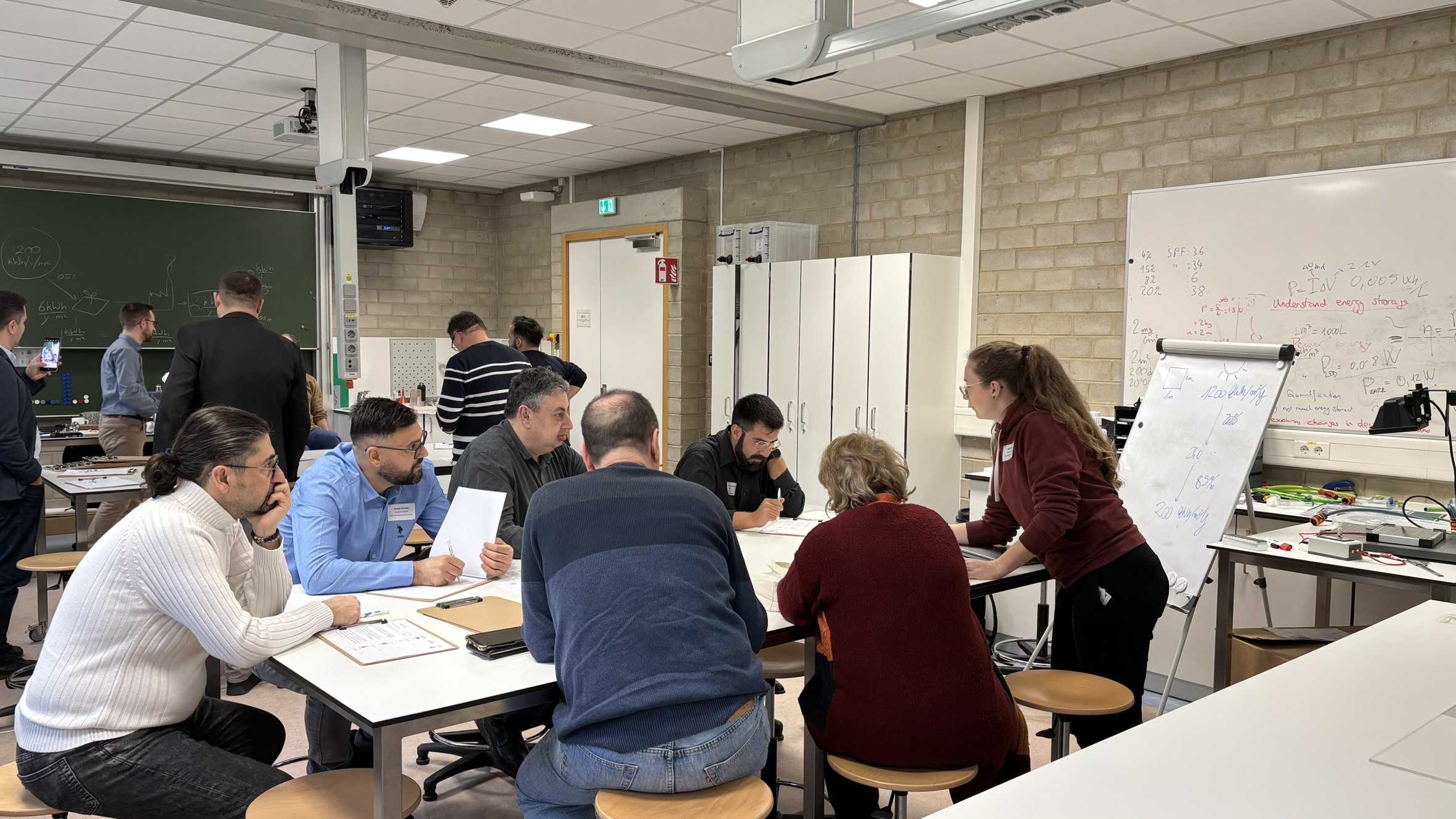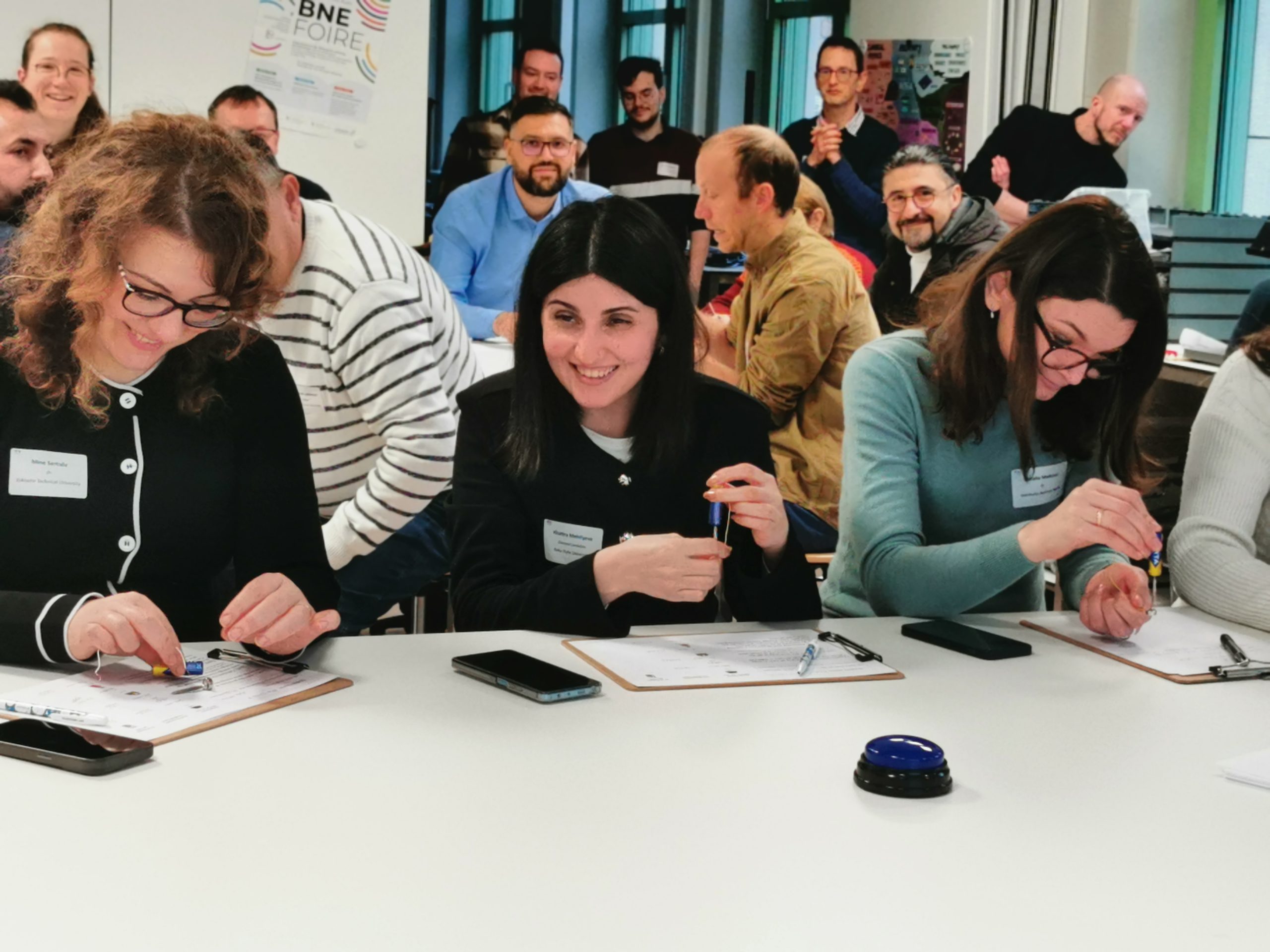The Scienteens Lab and the Department of Physics & Materials Science recently hosted a two-day outreach training programme for international researchers working in photovoltaics labs. The goal: Learning how to effectively communicate about their research, with the help of experienced researchers and science communicators from the Scienteens Lab, the Luxembourg National Research Fund (FNR) and the MEDIACentre of the university.
“Researchers are passionate about their work but rarely receive training on how to communicate science to the public in fun and interesting ways,” explains Prof. Phillip Dale, head of the Laboratory for Energy Materials, who is behind this initiative. “The Scienteens Lab has years of experience as well as the necessary pedagogical equipment to organise such a training and my own research group is very involved in outreach activities, like for example our Energy4Life project. So we had the perfect set-up to give it a go.”
Organised in collaboration with the EU funded RenewPV Cost Action Network, the two-day event was meant for photovoltaic researchers. “They work on projects related to renewable energy, sustainability and global warming. These are hot topics that we need to talk about,” underlines Dr Louis Krieger who is in charge of the physics and sustainability programme at the Scienteens Lab. “These scientists are well placed to inform the public on these matters, which is why it made sense to offer an outreach training especially designed for people working in the field.”
Interactive programme for an international audience
21 participants from all over Europe and beyond joined – on-site and online – on 10-11 February. They came from a wide range of research institutions, such as the Helmholtz-Zentrum Berlin, Aix Marseille University, the Catalonia Institute for Energy Research and Northumbria University. This diverse group of professors, doctoral students and junior researchers gathered to discover practical tools for outreach activities, take part in hands-on experiments and work in teams to come up with their own workshops.
The two-day programme addressed a variety of topics: How to go from an initial idea, through the development phase, to the implementation of an outreach event? How to get funding? How to engage the public? Experienced speakers shared best practices to define a target audience, come up with key messages and create corresponding hands-on activities. They also provided tips and tricks to develop pedagogic material, produce short videos and run workshops in front of a live audience. An important part of the course was dedicated to working in small groups to create new hands-on learning experiences with guidance from mentors. The participants had the opportunity to present their research and the corresponding outreach workshop they developed.
The benefits of training in science communication & outreach
For some of the researchers, the acquired experience had immediate benefits. “In a few days, I will attend a meeting about research on sustainable energy. My initial presentation, that I prepared a while ago, was perceived as too scientific and boring by the organisers,” mentions Prof. Alex Laikhtman from the Holon Institute of Technology. “On the other hand, the completely revamped version I came up with shortly after this training was met with a much better response.”
The feedback received from participants pointed out how valuable the content of this outreach training is. Their enthusiasm highlights the relevance of courses that enables researchers to try their hand at outreach activities in a welcoming environment. With the help of concrete examples and constructive feedback from experienced mentors, they can become proficient in science communication, ready to interact with the public in clear and engaging ways.
